Top 10 longest-range electric cars of 2023
What range anxiety?
WHEN buying a new battery-electric car, a long range between charges is perhaps top of the list of requirements (rightly or wrongly).
At the time of the original Nissan Leaf’s launch 12 years ago, the car makers dabbling with pure-electric models were trying to convince us that its official range of 109 miles between charges (less than that in the real world) was more than enough for most drivers.
In a way, it was true — research from 2008, published in the Society of Motor Manufacturers and Traders’ 2011 Electric Car Guide, showed that the average individual journey length in the UK was 8.6 miles and the average total daily distance travelled was 25 miles, while more than 80% of motorists across Europe drove less than 63 miles in a typical day.
It’s an argument made by some car makers still — Mazda says it about the MX-30, which has a range of just 124 miles, and Honda insists the same about the Honda e, which is similarly range-challenged, with just 137 miles between charges.
Aside from being adequate for most journeys, the arguments for smaller batteries are that they’re cheaper, thereby making EVs more affordable to buy, and lighter, which makes them better to drive. The Mini Electric is a perfect example of this philosophy.
And yet “range anxiety” (the fear of running out of charge) is a major talking point, with many commentators asking: “But what happens if I want to drive from London to Scotland?”. Although journeys of that distance aren’t common, a long road trip — say for a family holiday — once or twice a year isn’t out of the question for many households.
Elon Musk, the founder of Tesla, was one of the few electric car advocates arguing a decade ago that drivers shouldn’t just put up with a range of 100 miles or less. He knew that if the tech was going to take off, drivers would need electric cars capable of travelling at least three times as far as the Leaf. He had introduced the Roadster in 2008, which could travel 244 miles according to the American test cycle, and then the Model S (more than 300 miles) in 2012.
So what are the electric cars with the longest range between charges in 2023? Read on for the top 10, some of which are due soon in the UK but others are already on sale.
1. Lucid Air Grand Touring: 517 miles
On sale in UK: 2023 (claimed)
Price from: $138,000 (£114,700)
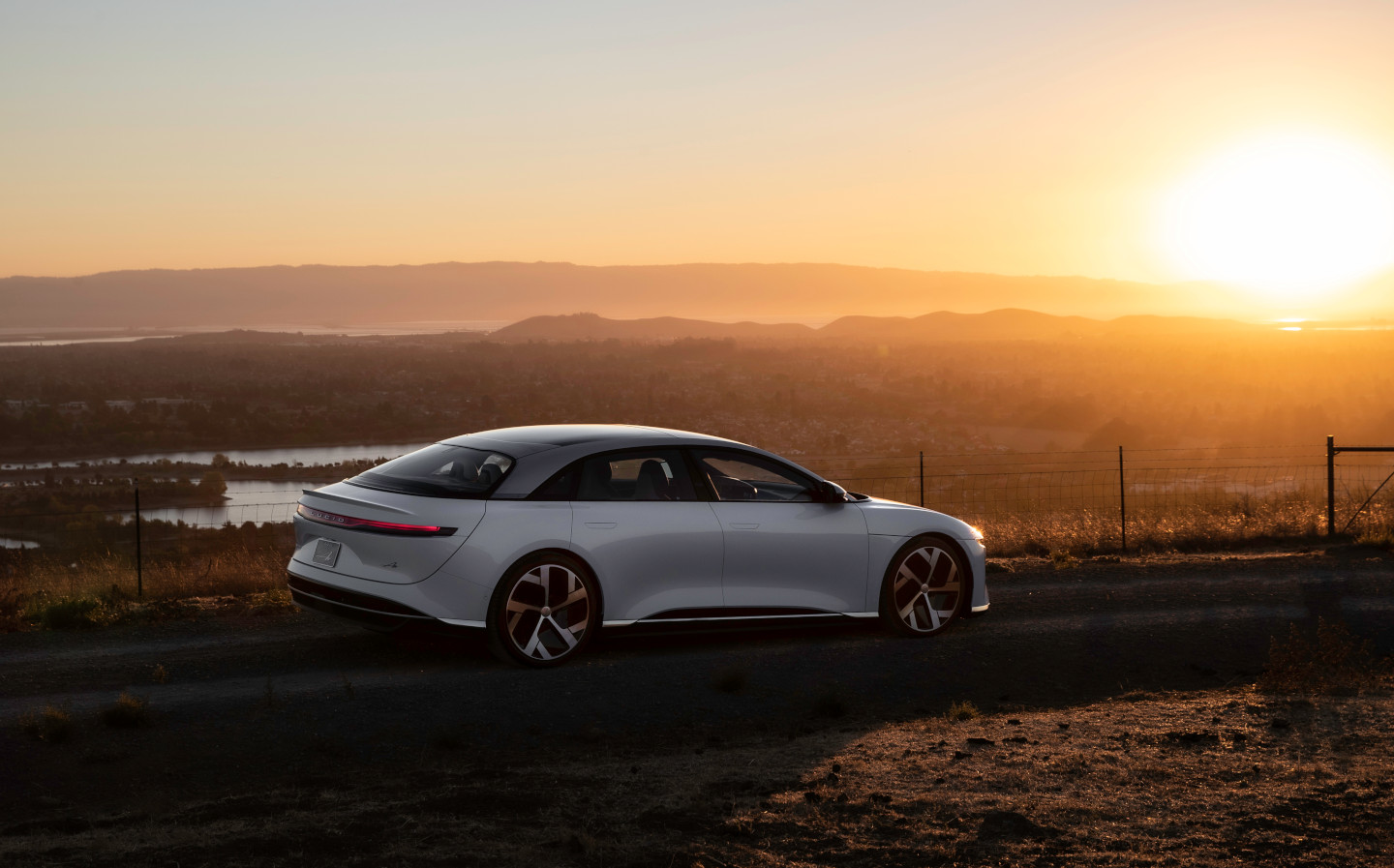
The Air Grand Touring is the longest-range version of Lucid’s rather handsome saloon, which is a direct competitor to the Tesla Model S — in fact, Peter Rawlinson, the company’s CEO, was the Model S’ chief engineer.
And it’s evident that Elon Musk sees the Air’s potential to steal some of the Model S’ sales. Soon after the Air was announced with a maximum range of 517 miles and a drag coefficient of 0.21 — claimed to be the best of any production car — Tesla came out with the Model S Plaid, which made incremental improvements: a 520-mile range and a drag coefficient of 0.208.
The Air is expected to arrive in the UK later this year, and one thing’s for certain: these Californian EV brands are sure to bring out the best in one another.
2. Mercedes EQS 450+: 453 miles
On sale in UK: Now
Price from: £105,610
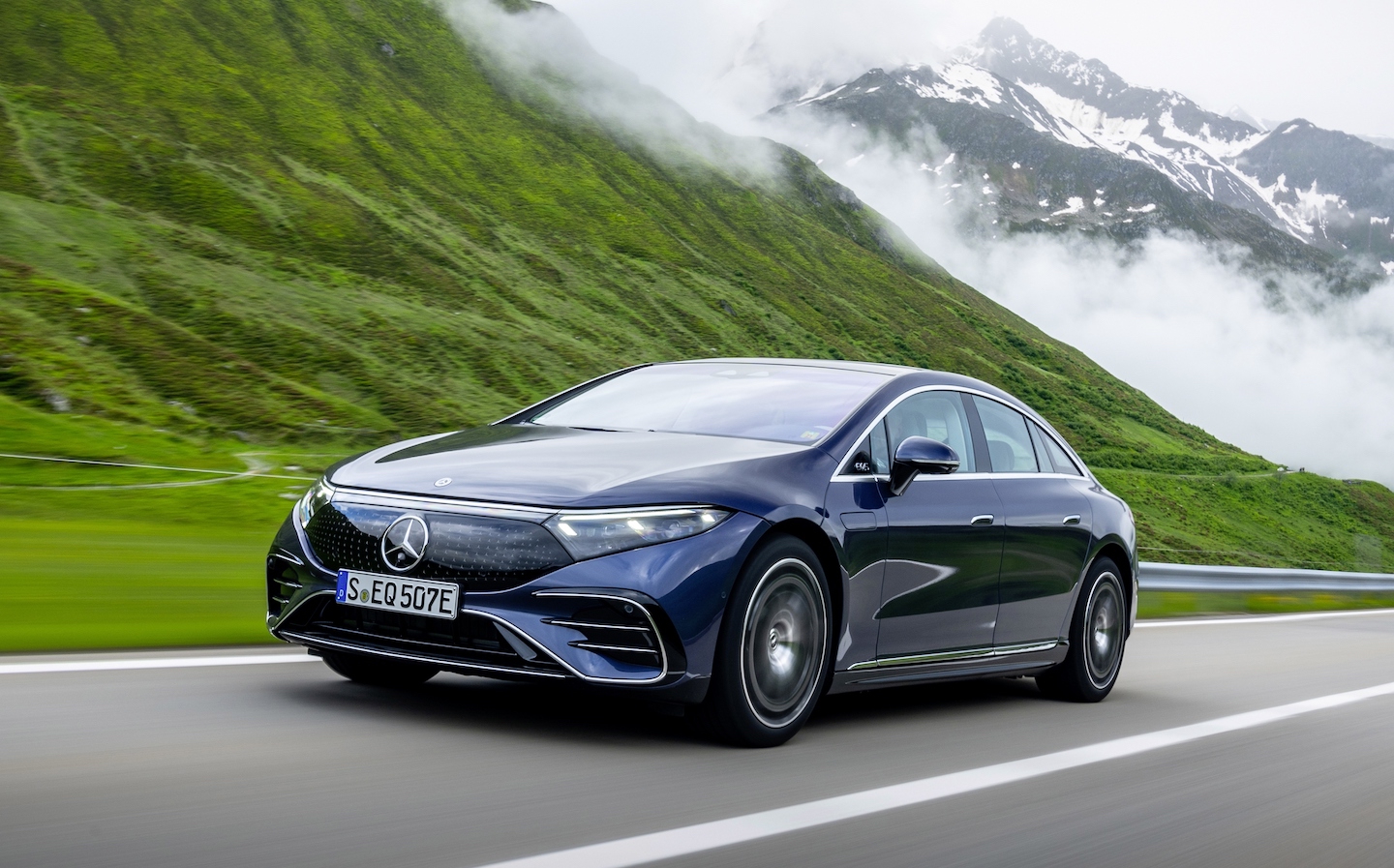
Like its competitors from Tesla and Lucid, Mercedes relies on aerodynamics to do a lot of the heavy lifting for its new electric flagship. It has a drag coefficient of 0.201, 0.007cd less than that of the Model S Plaid, which alongside a massive 108kWh battery pack enables an extremely impressive 453-mile range. And it does all that while packing the same level of quiet German luxury as the S-Class limousine.
A trio of high-resolution screens dominate the fascia inside, which Mercedes calls the Hyperscreen. The EQS is available with rear-wheel steering to increase its manoeuvrability at slower speeds and the car can automatically close its doors when you sit into it.
3. Volkswagen ID.7: 434 miles
On sale in UK: from late 2023
Price from: TBC
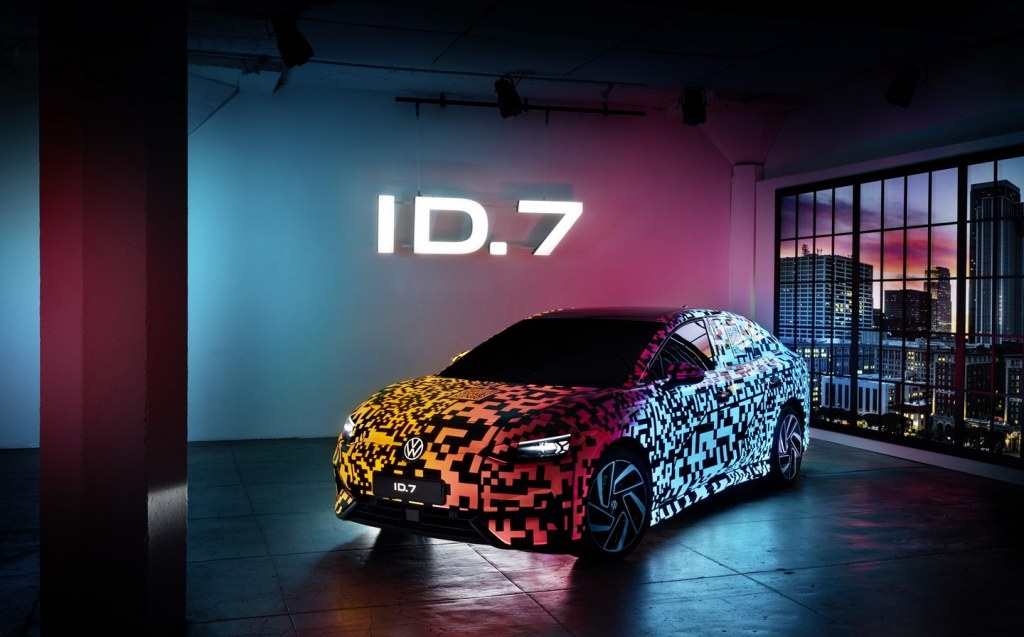
With the ID.7 saloon, Volkswagen is attempting to tackle the Tesla Model 3 and Hyundai Ioniq 6 head-on with a superior 434-mile range to both. The company has revealed little in the way of details for the ID.7 just yet, but the model will sit on the same MEB electric underpinnings as the VW ID.3, ID.4 and Skoda Enyaq iV. Thanks to its aerodynamic shape, however, it will, VW says, best every MEB car so far on distance between charges.
The ID.7 will also address one of the major criticisms levelled at the ID.3 and ID.4, with a more user-friendly infotainment set-up making the air conditioning controls easier to access on the go through a 15in central touchscreen.
4. Tesla Model S: 405 miles
On sale in UK: Now
Price from: £58,980
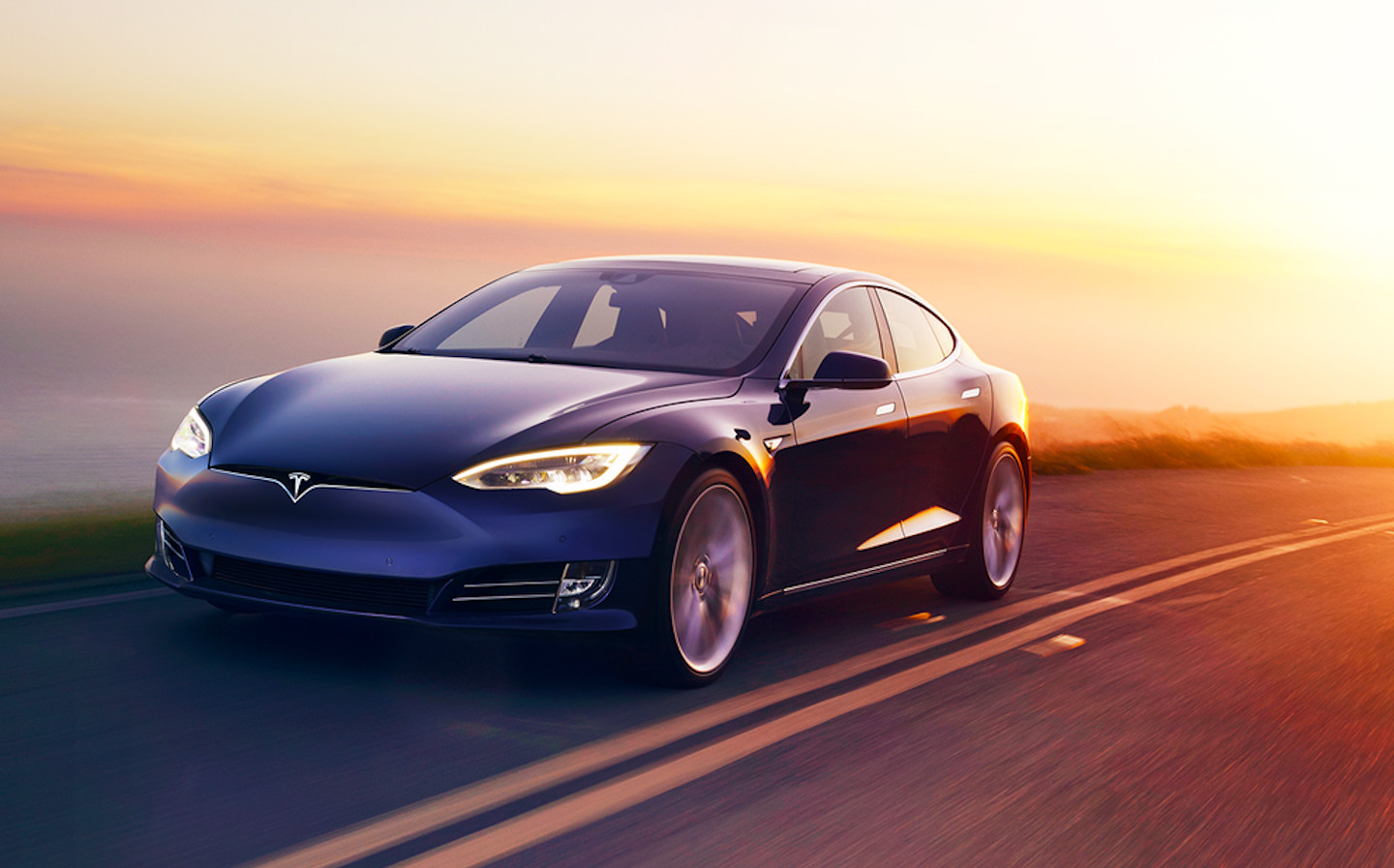
The entry-level model of Tesla’s grand tourer might not have the (probably literally) eye-popping acceleration of the Plaid, but it’s the only variant available for less than a six-figure sum, and it comes with sufficiently long range to do that much-discussed London to Edinburgh trip. It also comes with an adequately rapid 0-60mph of 3.1 seconds (as fast as a Lamborghini Urus, and faster than a Ferrari GTC4 Lusso).
5. Tesla Model S Plaid: 396 miles
On sale in UK: Now
Price from: £118,980
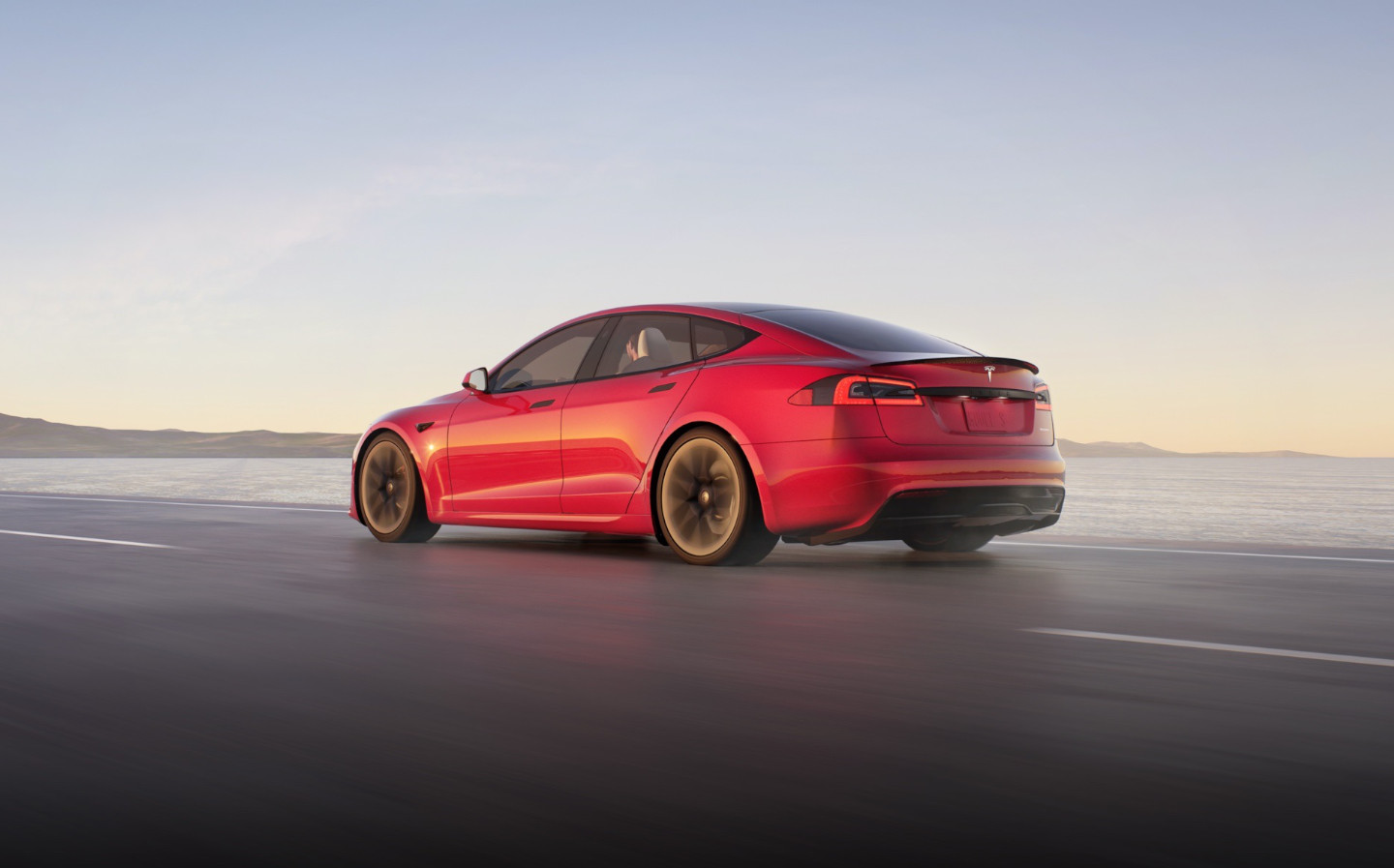
We’re aware that this list is becoming somewhat monotonous, but the fact that Tesla has appeared three times in the top ten longest-range cars is just testament to how far ahead of the pack the company is. The Model S Plaid trades some range for extra performance with three motors giving it a 200mph top speed.
In fact, Nikkei, a business publication in Asia, found after taking apart a Model 3 that Tesla’s electronics (i.e. its drivetrain and autonomous driving tech) is “at least six years” ahead of traditional car makers like VW and Toyota. No wonder it’s the world’s most valuable car company.
6. Mercedes EQE 350: 388 miles
On sale in UK: Now
Price from: £77,345
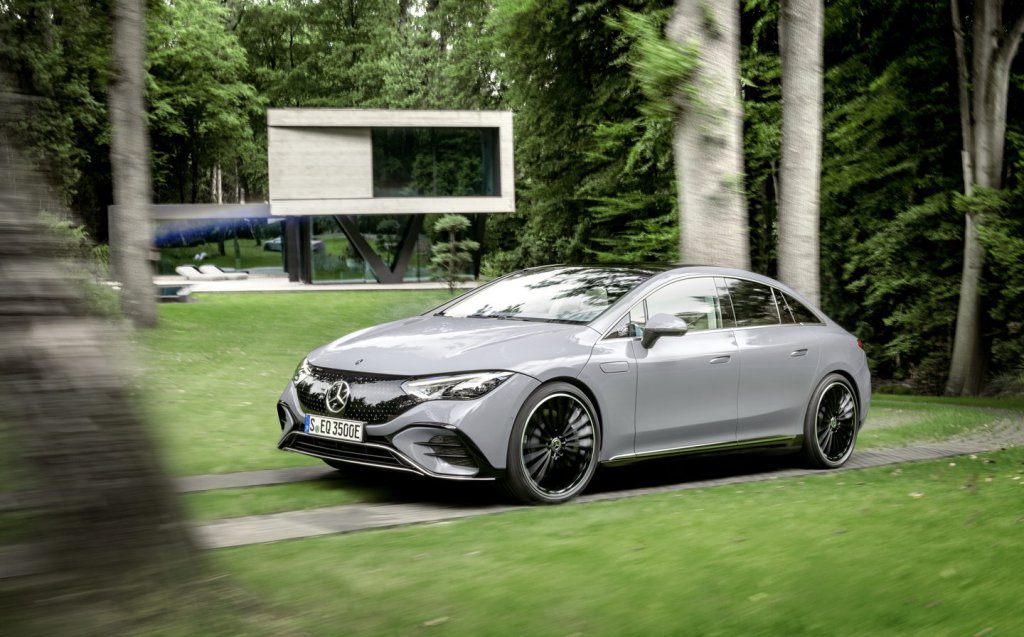
Where the Mercedes EQS is the company’s electric equivalent to the flagship S-Class saloon, so the EQE is to the E-Class. Both of Mercedes’s long-range electric models are based on the same ‘EVA2’ architecture, though the EQE uses a smaller – 90kWh – battery.
Both the EQE and EQS employ a similar formula, with the emphasis on efficiency rather than just big batteries (though those help). As such, the EQE gets similar sleek, cab-forward styling to better optimise airflow, increasing overall efficiency. The net result in the single-motor 288bhp EQE 350 version is up to 388 miles (WLTP) between charges. As with the EQS, it’s not just about performance figures, as the luxurious, high-tech cabin promises to be a rather nice place to spend time.
So enamoured were we by the EQE that it scooped the overall Car of the Year award at The Times and Sunday Times Motor Awards 2022.
7. BMW iX xDrive50: 380 miles
On sale in UK: Now
Price from: £99,785
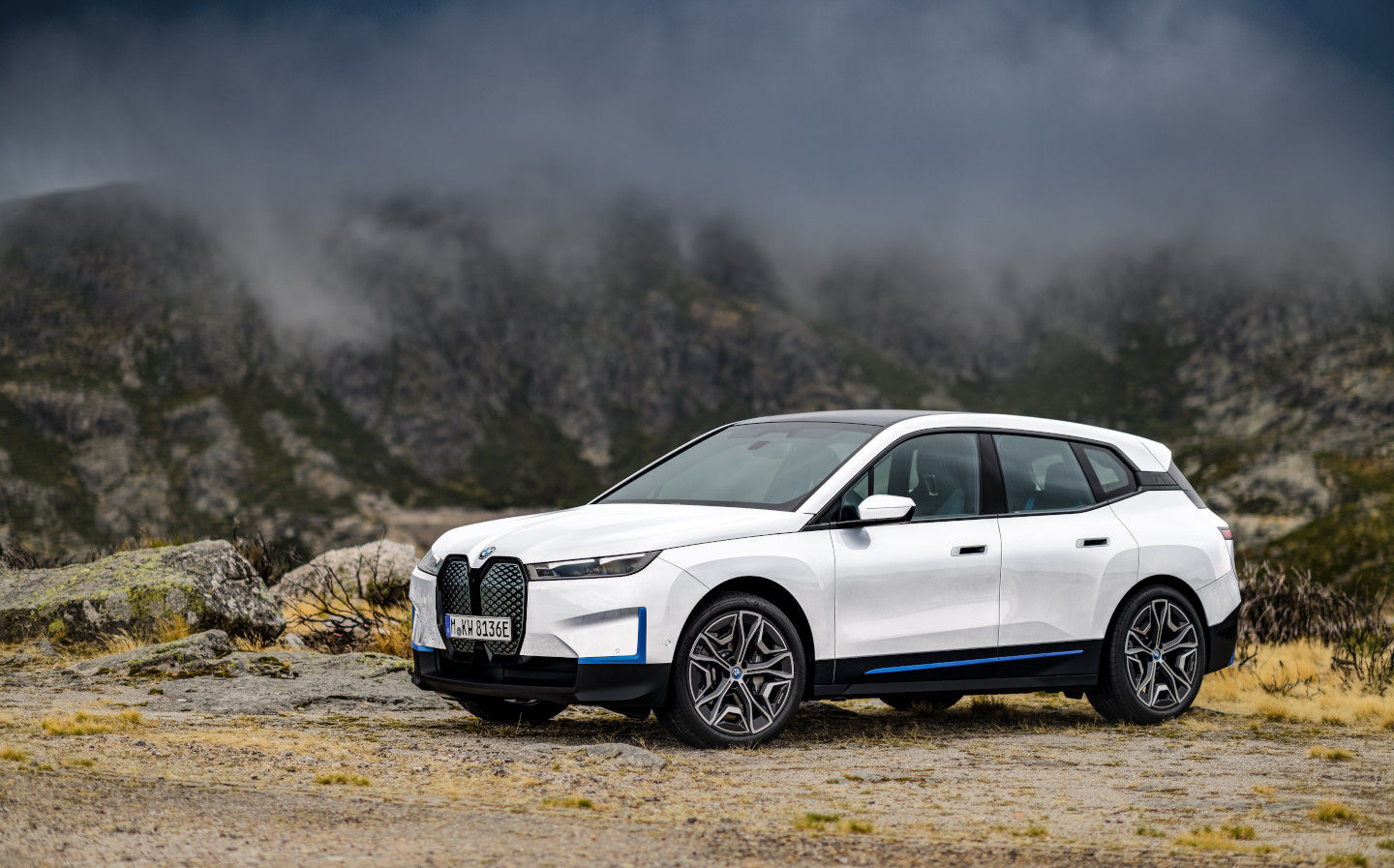
The announcement of the BMW iX was overshadowed somewhat by the red-blooded anger about its looks, which have proved, to put it mildly, polarising. However, beneath the skin is a seriously impressive drivetrain, with 380 miles promised between charges thanks to a 105.2kWh battery pack and two electric motors delivering a combined 516bhp.
This is one car where it’s really worth looking beyond the exterior as not only is the interior a rather lovely place to be, but it’s also a surprisingly good drive considering its 2.5-tonne mass. DC charging at up to 200kW is also useful. For those who can do without the xDrive50’s price tag, there’s the xDrive40 with a smaller 76.6kWh battery and a range of up to 257 miles.
8. Hyundai Ioniq 6: 379 miles
On sale in UK: Now
Price from: £46,106
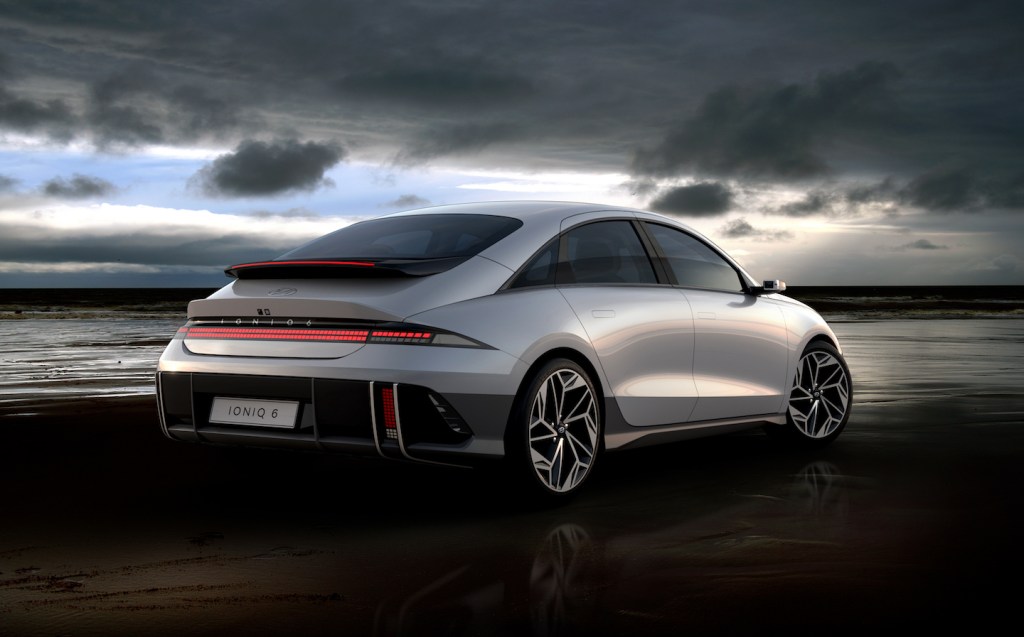
While it may share the same impressive powertrain as the Ioniq 5 and Kia EV6, the Ioniq 6, according to Hyundai’s figures, can go a lot further on a charge thanks to its slippery, ultra-efficient body. With a design supposedly inspired by 1930s streamliners, the Ioniq 6 is a far more aerodynamic affair than the bulkier Ioniq 5, achieving a drag coefficient of just 0.21 — the same as that of the sleek Lucid Air.
Aiding those aerodynamics are a covered underbody, active air flaps in the nose that only open when powertrain or brake cooling is required, flush door handles and the option of cameras to replace the door mirrors. It’s a particularly energy-efficient car with an efficiency figure as high as 4.4 miles per kWh, which compares favourably with the Mercedes EQS and EQE. According to Hyundai, it enables a 77.4kWh model with rear-wheel drive and riding on 18in alloy wheels to achieve a WLTP range of up to 379 miles.
9. Tesla Model 3: 374 miles
On sale in UK: Now
Price from: £48,490
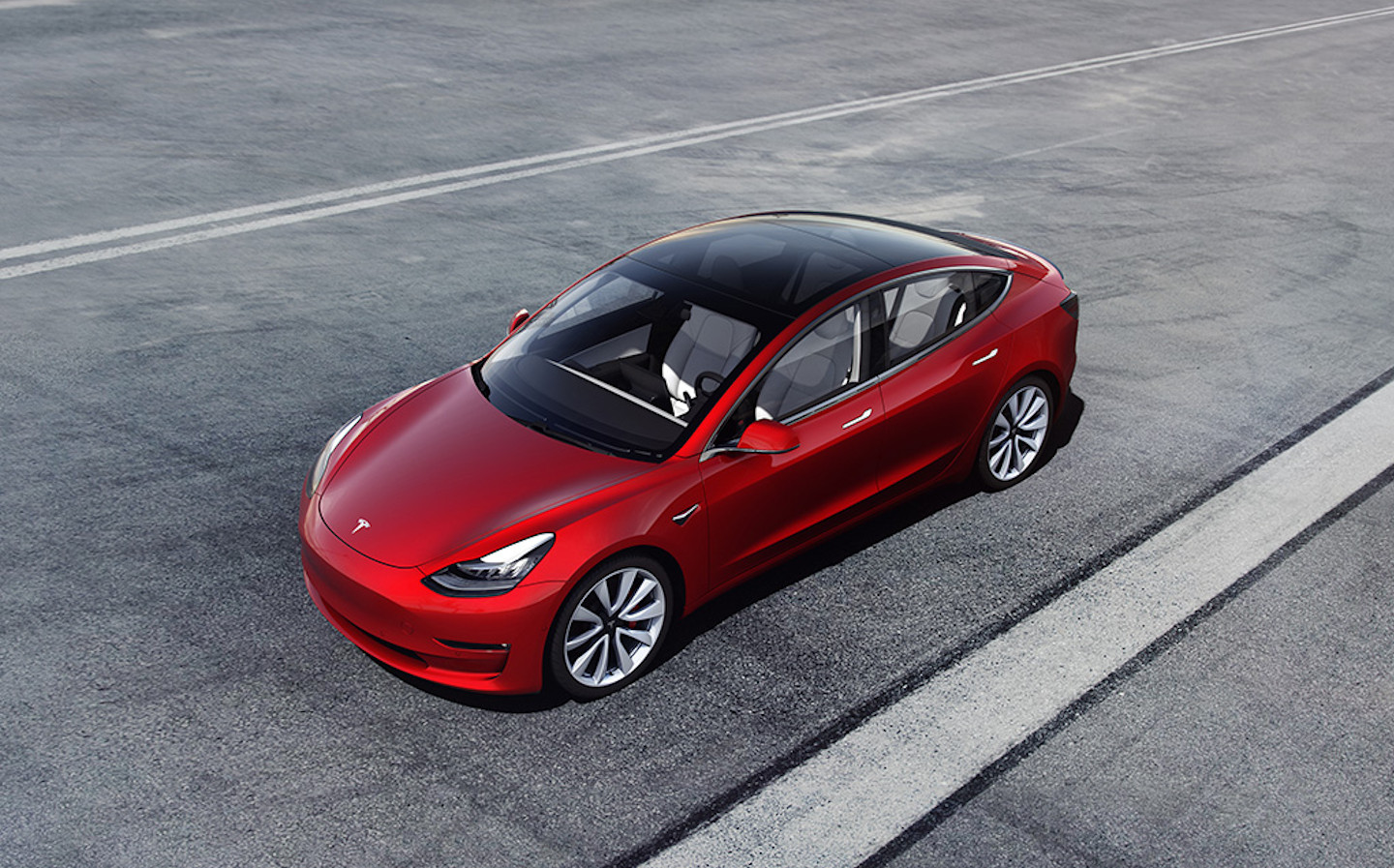
The longest-range edition of Tesla’s entry-level model has a bigger range than that of the Model X SUV, and is nearly £37,000 cheaper. Of course, it’s not as big, but it’s still pretty roomy inside for a compact saloon — no doubt one of the reasons that it was the UK’s second best-selling car in 2021, shockingly beating perennial favourites such as the Ford Fiesta, Focus and Volkswagen Golf. The arrival of the larger Model Y, however, has since stolen some of the Model 3’s sales thunder.
10. Ford Mustang Mach E Premium RWD: 370 miles
On sale in UK: Now
Price from: £59,380
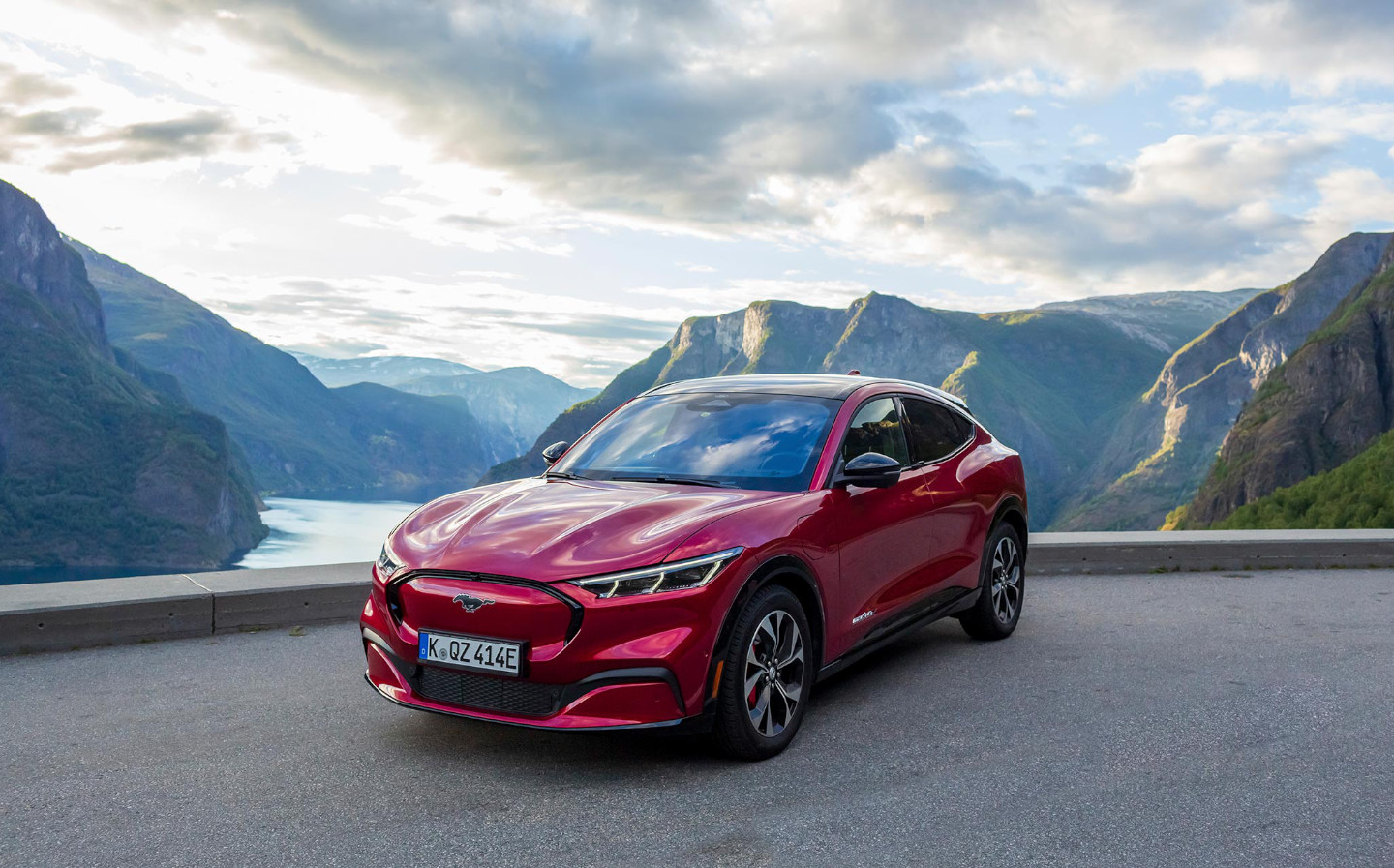
Some may say that the Mustang Mach-E is a Mustang in name alone — it’s an SUV and won’t be able to muster the V8 growl for which the car has become known during its nearly 60-year history.
However, Ford’s electric pony car has proven as fun and lively to drive as it is practical, and the ability to do 370 miles between changes in the extended-range model is notably useful for long-distance drives.
Related articles
- Enjoyed our roundup of the longest range electric cars to buy in 2023? You might like to read Driving.co.uk’s review of the BMW iX3.
- Hyundai recently recalled thousands of electric vehicles after reports of fires, here’s the details.
- Not sold on pure-electric? Read our review of the Ioniq hybrid here.
Latest articles
- Aston Martin Valkyrie AMR-LMH hypercar hits track ahead of 2025 Le Mans challenge

- Porsche has begun testing the electric Cayenne

- Cupra Leon 272 eHybrid 2024 review: Bigger battery, better tech … but is it a Cupra?

- Porsche 911 GTS 2024 review: Hybrid heresy or more Stuttgart genius?

- Extended test: 2023 Vauxhall Astra Sports Tourer GS PHEV





